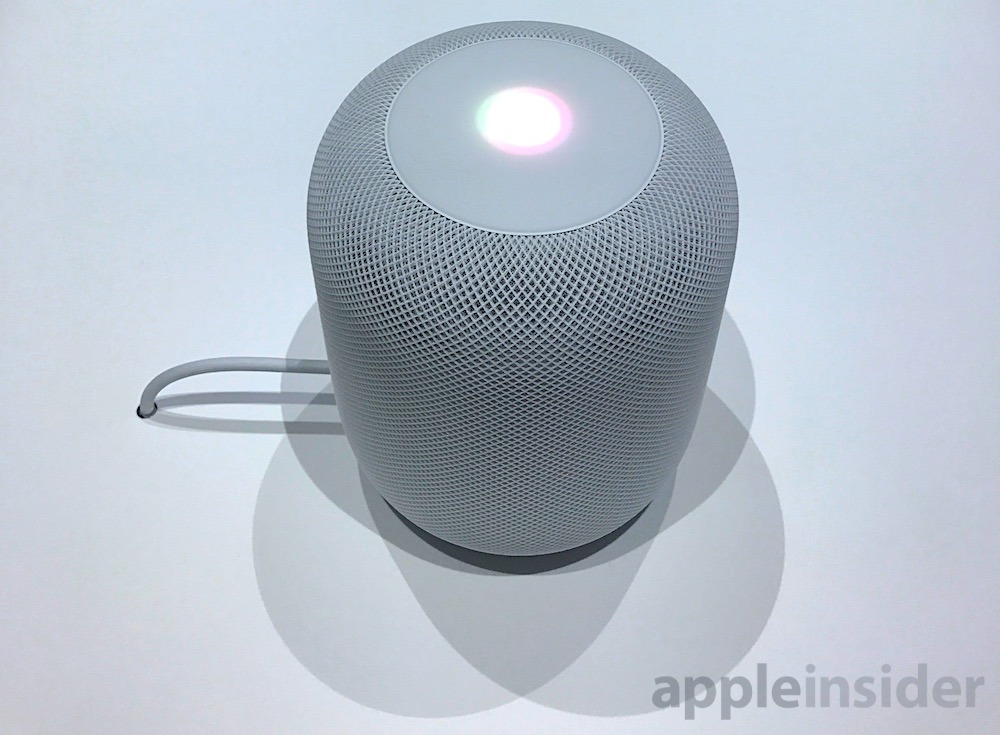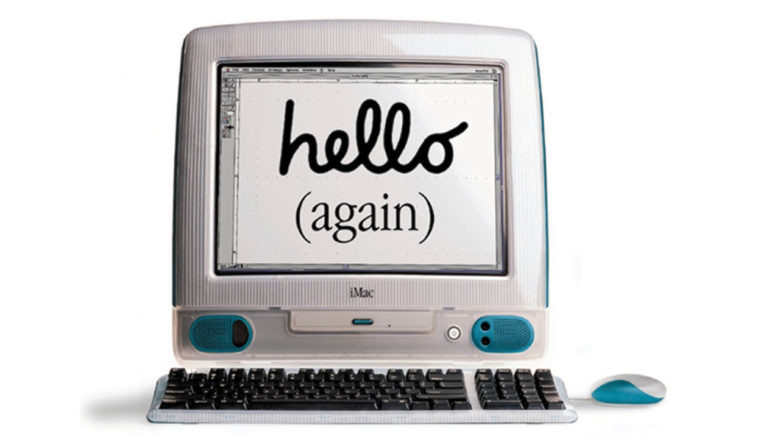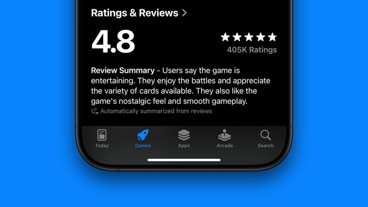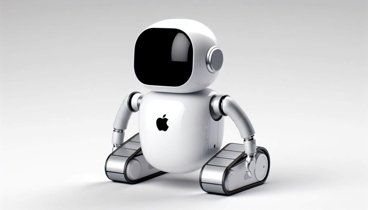Every time Apple has entered a new market segment, the wailing sirens of punditry have scrambled to scream out their logic of how impossible it will be for the company to ever get established, to meaningfully change the rules, and to succeed commercially. And at the same time, those same critics frequently throw out the idea that Apple doesn't even have to try to succeed in hardware, because its audience of raving fans will blindly buy any overpriced, underperforming thing the company releases. In both cases, they're wrong, here's why.
We've seen two decades of this cognitive dissonance posing as analysis with iPod, iPhone, MacBook Air, iPad, Apple Watch and now HomePod. At first, there was supposed to be no way Apple could be successful or even compete in any of these markets. Then, in hindsight, Apple's performance is portrayed as a fait accompli, the result of the company's effortless ability to shovel anything into the market, douse it with marketing, and ignite a bonfire of vanity that attracts simpleton fans who don't know any better.
Apple's hardware business is portrayed as so effortless that the company doesn't even deserve any credit for its success. The obvious corollary to this bizarre flawgic is that rival companies can also just throw out new ideas that will obviously be accepted and embraced by consumers the same way Apple's are, because hardware is easy.
And even more bizarrely, when rival attempts to launch hardware fail (think: Zune, Windows Phone, Android Tablets, Chromebooks, Nexus, Surface, Pixel, Galaxy Watch, Android Wear, etc), the people who fervently believed in them while there was some hope they might take off suddenly spin around and explain that none of these product attempts were really important or should even be considered failures because they were just practice rounds or corporate pantomime exercises designed to signal to licensees how they could best copy Apple on their own, as if they weren't already.
Another logical leap that always comes up short: if Apple's marketing were the main thing driving its sales, why haven't Google and Microsoft been able to sell their brands in commercially significant volumes, given Microsoft's billions devoted to marketing and Google's supposed genius in targeting and reaching buyers with effective advertising messages?
Apple and the long hardware struggle
Apple has always ostensibly focused on hardware, where it makes the vast majority of its revenues. Despite an insistent media narrative that all the company does is throw overpriced hardware at an audience of raving fanatics who will buy anything, and/or fools the world with its clever advertising, the reality is that Apple hasn't always been magically successful in introducing new hardware.
After its first two decades focused mainly on desktop computers, Apple expanded into the business of printers, digital cameras, monitors, CD-ROM and PDA devices in the 1990s, all of which failed to establish significant new markets for growth. This all wasn't just due to the departure of Steve Jobs and his magical insight back in 1986; Jobs' own NeXT Computer also failed to succeed commercially in hardware sales.
The fact that Apple and NeXT hardware were both struggling into the 1990s while Microsoft's software was ascending into near total control of personal computing set the stage for a persistent mindset that hardware simply wasn't going to ever make money. The new gospel was that hardware would be nothing more than a commodity product running Windows, or perhaps someday Linux, and that niche OS hardware would never again matter commercially.
In 1994, Apple itself attempted to begin licensing its Mac OS (and later its Newton operating system) to third party hardware makers. The previous year, Jobs had similarly decided to shift NeXT from its original hardware focus to a pure software licensing business. Both efforts failed to work out well.
Somewhat surprisingly (at least to people at the time, who were saturated in the mindset of commodity hardware), when Jobs returned to Apple at the end of 1996 he terminated all of those software licensing deals and returned Apple to a hardware focus, starting with new PowerBooks in 1997 and then the new iMac in 1998.
In the 2000s, Apple found incredible success with iPod, then iPhone. But it also failed to find significant interest in some of its other new hardware introductions, including Xserve, Xserve RAID and the Mac mini. All of these products were enthusiastically introduced by Jobs and were expertly marketed, updated and enhanced at regular intervals.
Clearly, the idea that Apple always succeeds without even trying because of its indiscriminate, marketing-fooled fans is total hogwash. There's obviously something else that has fueled Apple's hits, something that was missing in its strikeouts. This factor is also evident in the product introductions by other companies.
 Daniel Eran Dilger
Daniel Eran Dilger









-m.jpg)






 Marko Zivkovic
Marko Zivkovic
 Christine McKee
Christine McKee
 Andrew Orr
Andrew Orr
 Andrew O'Hara
Andrew O'Hara
 William Gallagher
William Gallagher

 Mike Wuerthele
Mike Wuerthele
 Bon Adamson
Bon Adamson




-m.jpg)



15 Comments
Formula 1 race drivers make driving around a race track look easy
NBA players make throwing a ball into a 3 metre high hoop look easy
Baseball players make hitting a little ball with a fat stick look easy
Apple makes the design, manufacture and distribution of high end consumer electronics hardware look easy
If all the above is that easy, then these so called experts should give it a try
Grrrreat article. Rolling. It's amazing how people don't get Apple, even when Tim Cook spells it out. They invest a ton in h/w and s/w integration down into the chip design. That is what drives demand and margin, and keeps the brand strong. Elegant design and branding add a lot but alone they could never sustain Apple. Another thing folks don't get is that Apple says "no" a lot. Steve Jobs touted this as one of his most important roles. Tim Cook carries this on. Hence Apple does not chase after every new product or feature. People see this as a failing. When Apple does introduce a new product, they are all in, from chip to retail training and inventory management, which costs a lot. Compare and contrast Google Glass and AirPod. Glass was a great experiment and a zero business. Google did not invest much into Glass, hence it's high price. But it generated massive enthusiasm. AirPod, whose demand still exceeds supply, required major investments by Apple and it's suppliers because the technology is so far ahead and it's price is accessible. Analysts just see a small white bauble. Guess what? No one else has such a bauble. Very curious to see how long until competitors release an inferior copy cat. And.. Apple Watch and AirPod, both wearables, show Apple crushing two new categories. The rest is the Smart Watch biz is more fragmented than Android. AirPod has no competition as "smart" earbuds.. Both run variants of iOS.
"Nobody ever got fired for buying IBM"
Calling customers , viewers & voters stupid is some of the weakest arguments used by the media.
So true. I might be a fan, but I am neither blind nor stupid.